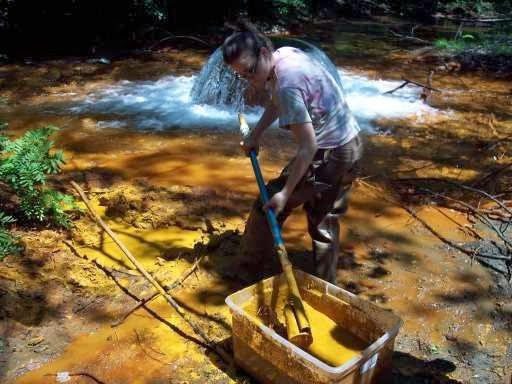Abandoned mines present an interesting dilemma in the American conservation debate. These dark, musty channels interwoven throughout the nation’s underground were once the key to supplying the public’s energy needs and existed alongside the oil and natural gas industries to keep our lights on. Even then, a simple observation of the effects of black lung made it obvious that coal exposure was dangerous for the miners. But times were different — there were increases in average mortality across a great many occupations.
Today, many of those mines have exposed a new conflict. Renewable energy technologies have decreased public reliance on coal. Mines have been shutting down as a result. While their inactivity may be a net positive for the climate, their simple existence is often enough to continue wreaking havoc on the local environment. They taint local waterways with toxic chemicals, destroy land that could otherwise be farmed, and cause immediate safety concerns if they collapse.
Adding to the issue is that for years cleanup efforts have dealt with hurdles caused by part of the 1972 Clean Water Act that makes nonprofits fully liable for simply offering a helping hand. Now, a group of bipartisan senators is petitioning Congress to take another look at debating a bill that tackles the dilemma.
This past July, a coalition of senators from mine-heavy western states sent a letter to the Senate Environment and Public Works Committee regarding the status of abandoned mines in the region. “There are over 140,000 abandoned mine features on federal, state, Tribal, and private lands which pose a risk to human health and the environment,” says the letter, which has support from senators like North Dakota Senator Kevin Cramer, and Senators Steve Daines and Jon Tester from Montana. “This Act begins to remove these hurdles to maximize the impact of the new abandoned hardrock mine remediation program, both on the ground and in communities.”
The legislation, the Good Samaritan Remediation of Abandoned Hardrock Mines Act, is a bipartisan bill introduced in February of this year. The bill would create a pilot program that gives conditional exemptions to nonprofits interested in mine cleanup operations.
Under current federal law, nonprofits who attempt a cleanup operation are legally and financially liable for any pollution later caused by the mine.
The act is part of a long history of “good Samaritan” legislation in this country, where beneficial actors often find themselves subject to a lawsuit for acting in ways that would otherwise be seen as generous. While similar efforts at overturning these policies have failed before, industry experts like Doug Young hope that Congress will be persuaded by the knowledge that the current system has actively stymied cleanups for decades, likely unintentionally.
“If you see somebody injured on the sidewalk, and they’re bleeding, and you’re not an EMT, and you try to help them, you’re not to be held to the standard of a doctor or a surgeon,” Young said. “That’s the same concept here.”





